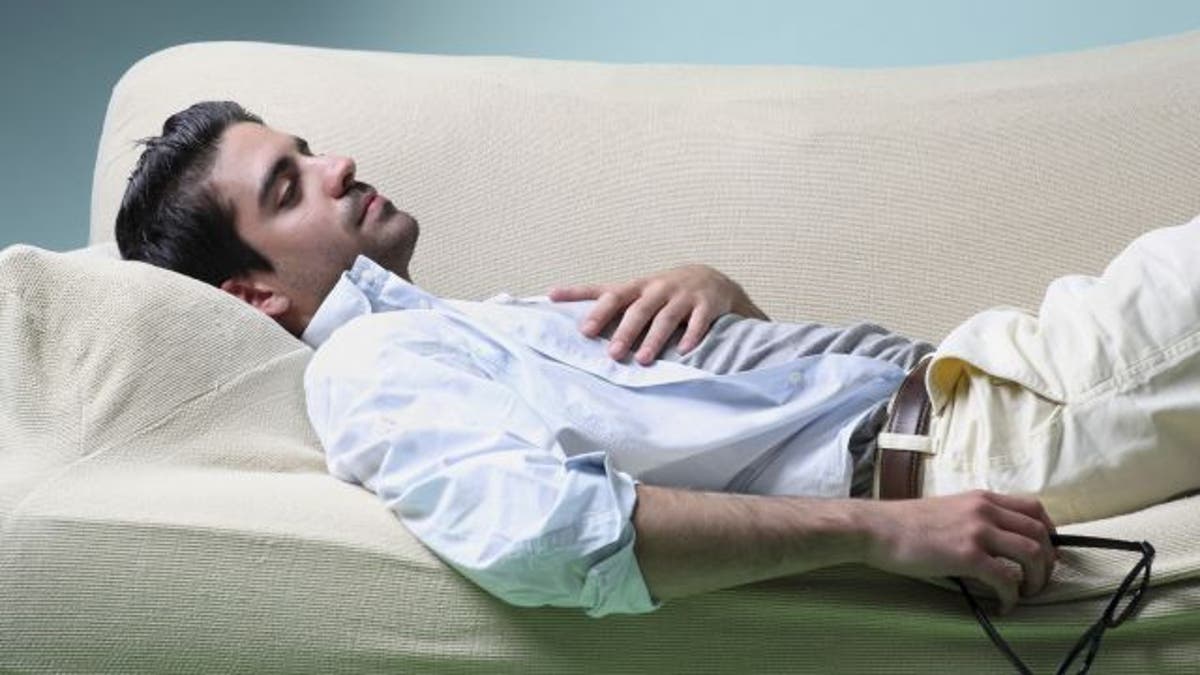5 tricks for the best nap ever
{{#rendered}} {{/rendered}}
Naps used to get a bad rap, conjuring up all sorts of unfortunate—and unfair—images of slackers, rambunctious kindergarteners in need of time outs, and AARP members looking to rest their weary bones.
Not anymore. A 2013 Gallup Poll revealed that 40 percent of Americans get less than the recommended seven hours of sleep a night; what’s more 43 percent admitted they’d feel better if they got more sleep. So it makes sense that we’d try to catch some extra zzz’s whenever (and sometimes wherever) we can.
And more and more people are doing just that. Companies like Google, Ben & Jerry’s and Proctor and Gamble encourage employees to take nap breaks. The University of Michigan in Ann Arbor is one of several colleges to set up rooms for napping. (Located in the school’s library, UM’s nap station is equipped with vinyl cots, disposable pillowcases, and a 30-minute time limit.) And Barclays PLC, a global financial group, got some unwanted publicity last year, when the Wall Street Journal revealed that exhausted interns were slipping into stalls to take “toilet naps,” using their phones as an alarm. And then there’s Google Naps, a parody of Google Maps, which can tell you the best places in your city to catch a few winks—from libraries to park benches.
{{#rendered}} {{/rendered}}RELATED: Best and Worst Foods for Sleep
Before you Type A’s get all judgy, know this: Feeling sleepy before bedtime is completely normal. Our body’s internal biological clock (otherwise known as circadian rhythm), which regulates our physical, mental, and emotional changes 24/7, also controls our wakefulness. According to research from Harvard Medical School, we usually feel alert during the day then gradually become sleepy as we move toward evening. But some of us experience a bout of mid-afternoon drowsiness, and a quick snooze can be just the ticket for handling that fuzzy feeling.
What’s more, studies show that there is a virtual laundry list of benefits to be had from nabbing some shut-eye (hey, they don’t call it a power nap for nothing). Among them: A nap can boost brain power, make you more alert, and improve your memory. Oh, it can also help your waistline: lack of sleep can trigger hunger and could lead to overeating.
And now that the weather’s turned ridiculously cold (in the some parts of the country, anyway), can you think of a better time to indulge in a little cozy midday shut-eye? Here’s how to get the most from hibernating:
{{#rendered}} {{/rendered}}Find the middle ground
As with many things in life, timing is everything.
“Basically, the best time for a nap is as close to the middle of the day as possible,” said Michael Grandner, psychiatry instructor at the University of Pennsylvania’s Perelman School of Medicine.
“Before lunch is too early,” he said. “Lie down too late in the day and it will interfere with your nighttime sleep. Now it’s getting darker earlier and daylight has shifted, so probably not before noon and not after 3:00.”
{{#rendered}} {{/rendered}}RELATED: 7 Bedtime Behaviors That Will Help You Sleep
Keep it brief
Telling yourself, “I’ll lay down for however long I sleep” is not a great idea. You need figure out a set length of time for your nap and set the alarm. Ideally, a power nap should be 20 to 30 minutes.
“You can go to 60 minutes, though once you go beyond 30 minutes, you get diminishing returns as far as improving brain function and reaping other benefits from your nap,” Grandner said.
{{#rendered}} {{/rendered}}Plus, he says, if you extend your nap past 60 minutes, you’ll enter into a deeper (or slow-wave) stage of sleep and might wake up feeling groggy—which could affect how the rest of your day goes.
Sack out on the sofa
Your bed signals to your body that you’re nodding off for the night and can put you in a nighttime sleep mode. What you’re looking for, Grandner said, is a place that’s comfy, but not too comfy. The couch is your friend.
RELATED: 11 Surprising Health Benefits of Sleep
{{#rendered}} {{/rendered}}Keep it quiet
Be protective of your sleep space, Grandner said. You’re looking for a place that’s as quiet as possible (consider a white noise machine or ear plugs to drown out any noise). It should be dark enough to close your eyes, but not pitch dark.
“You don’t want to confuse your brain into thinking you’re retiring for the night,” Grandner said.
The temperature shouldn’t be too hot or cold—slightly cool is ideal for maximum comfort. (If you’re too hot or too cold, your body has to regulate its temperature, which might make it hard to relax.)
{{#rendered}} {{/rendered}}Coordinate the caffeine
It might seem counter-intuitive, but a 2003 Japanese study found that downing a cup of Joe right before settling down can contribute to a restful nap. Here’s why: Caffeine doesn’t kick in until about 20 to 30 minutes after it’s ingested. So you’ll wake up just as the coffee is taking effect—and feel wonderfully refreshed.
Simply resting can help, too
Looking for a doze at work? Grandner assures that rest, even without sleep, can be beneficial. Just relax, close your eyes, take deep breaths, and you’ll perk back up in 20 to 30 minutes. In fact, we may have found just the thing to help you wind down during your 9-to-5: Meet the Nutshell sleep pod, a wearable sack of blissful solitude, designed by a resourceful student at the New York School of Visual Arts. It’s just a prototype right now, but fingers crossed. (Hey, it beats hanging out in a restroom stall, right?)
RELATED: 7 Tips for the Best Sleep Ever
{{#rendered}} {{/rendered}}